Outpatient Mental Health for Adolescents & Teens in Mt. Juliet, TN
Choosing the right mental health treatment for your child can feel difficult and overwhelming. Embrace U’s intensive outpatient mental health programs in Mt. Juliet, TN, provide life-changing treatment to adolescents and teens, including those living with learning differences.
We help adolescents (ages 10 to 18) who are experiencing:
- Severe symptoms of anxiety or depression
- Behavioral health challenges, including anger management issues, school avoidance, bipolar disorder, self-harm, or suicidal thoughts
- Neurodivergent mental health challenges
Our structured programs provide more support than a traditional therapist, but are less disruptive than a hospital stay or residential center. We also provide more parent support than other treatment centers.
Within our welcoming and safe environment, your child can develop the skills and coping mechanisms they need to manage symptoms, gain higher levels of function, and live a healthier life.
Call us at 615-732-3376 today to request a free mental health assessment!
How Embrace U Works
Reach out
Call our care team to learn more about Embrace U programs, insurance coverage, and answer any other questions you may have.
Get your free assessment
Come in for a free assessment. In a 60-minute session, we’ll review your child's unique needs and find the treatment program that’s right for them.
Life-changing treatment
Our evidence-based treatment programs set participants and their families up for long-term success. Learn more about our programs below.
What Is Embrace U?
Embrace U is an evidence-based, outpatient therapy provider designed to help people ages 10-18 gain control over the symptoms of a mental illness.
The Embrace U care team includes a board-certified child and adolescent psychiatrist, a psychiatric nurse practitioner, licensed therapists, and registered nurses.
Our adolescent mental health clinics in Brentwood, Chattanooga, Collierville, Knoxville and Mt. Juliet offer life-changing treatment. Participants and their families gain the support they need through group experiences and structured individual and family therapy. Our therapy programs help adolescents develop coping skills, stronger self-esteem, and better ways to communicate.
Request Free Assessment
Embrace U
5000 Crossings Circle, Suite 201
Mt. Juliet, TN 37122
(615) 732-3376
Located in the Providence West Medical Center, near Interstate 40 exit 226, Embrace U’s Mt. Juliet location provides an oasis to families seeking help for children and teens with mental health challenges.
Our Mt. Juliet mental health clinic has a clean, modern feel, with bright, open spaces for group therapy sessions, private rooms for individual meetings, and a snack area. Our neurodivergent group room accommodates different sensory needs, learning styles, and communication preferences. You’ll find participant artwork covering many walls, along with comfortable couches and chairs.
Our services include intensive outpatient programs for teens and adolescent partial hospitalization programs.
Our Programs: Intensive Outpatient & Partial Hospitalization
We offer two structured programs for children and teens ages 10 to 18: intensive outpatient and partial hospitalization.
Participants in our intensive outpatient program (IOP) typically come to the clinic three or four times a week for group and individual therapy sessions. Our partial hospitalization program (PHP) offers more support. Participants in PHP visit us four or five times a week for longer therapy and individual sessions.
While your child’s treatment time may vary based on their unique goals and needs, the majority of participants attend our programs for six to eight weeks. Most start feeling better within two weeks of treatment, and experience lasting recovery after completing a program.
Our intake process includes:
- Determining your child’s diagnosis and treatment needs through a free psychiatric assessment.
- Discussing treatment goals and developing a plan specific to your family’s needs.
- Enrolling your child in one of our two programs (IOP or PHP) that combine group and individual therapy with medication management and family counseling. Our team includes psychiatric providers, licensed therapists, and a care coordinator.
- Providing ongoing support after program completion.
At Embrace U, your child can develop the skills and confidence they need to manage their mental health. Call us at 615-732-3376 today to request a free mental health assessment!
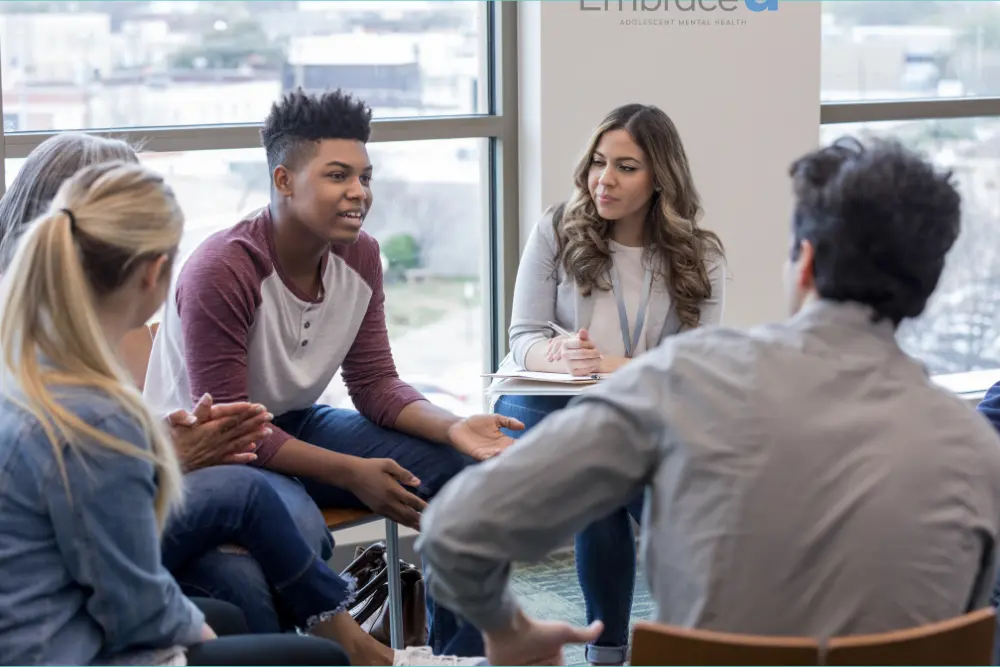
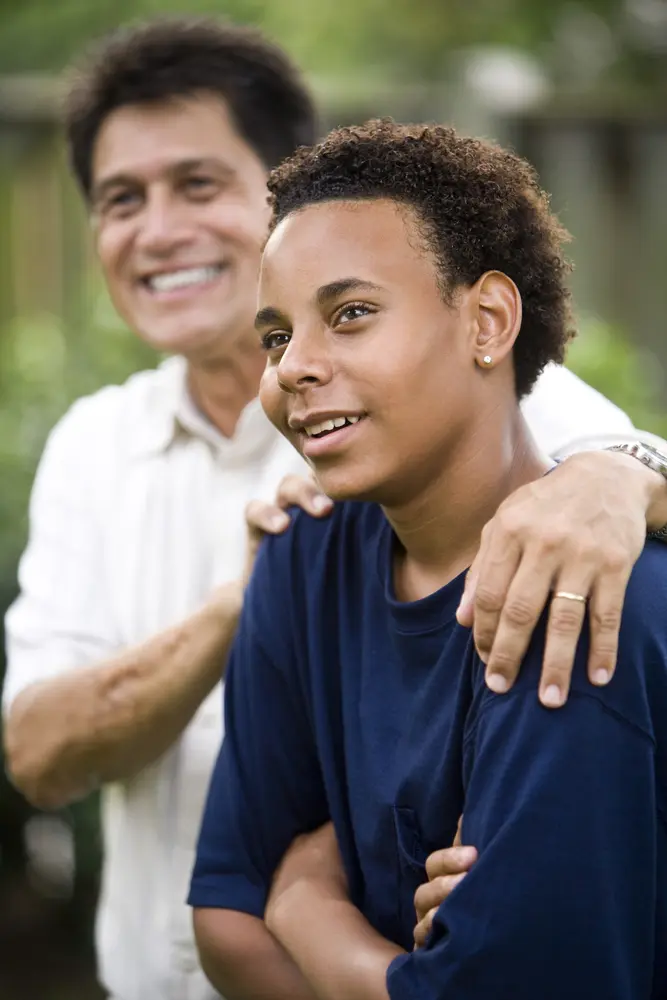
Mental Health Symptoms We Treat
Our outpatient mental health programs for teens and adolescents in Mt. Juliet, TN, can help with:
- Anger management concerns
- Anxiety
- Bipolar disorders
- Blended family issues
- Family and relationship issues
- Grief and loss
- Isolating behaviors
- Poor body image
- Post-traumatic stress disorders
- Psychiatric disorders
- School Avoidance
- Self-esteem issues
- Self-harm behaviors and thoughts
- Stress management issues
- Suicidal thoughts
Our neurodivergent program treats adolescents who experience the symptoms and conditions above, but also live with:
- ADHD
- ADD
- Autism Spectrum Disorder
- OCD
- Tourette Syndrome
- Dyslexia, Dyscalculia
- Other learning differences
Our Programs
Embrace U offers two programs to help adolescents build coping and communication skills – Intensive Outpatient (IOP) or Partial Hospitalization (PHP), after an assessment by our psychiatric provider, your child will be admitted into one of our therapy programs based on their needs.
Partial Hospitalization Program (PHP) 20+ Hours per Week
Intensive Outpatient Program (IOP) 10+ Hours per Week
Best for Adolescents Who:
- Miss school or extracurricular activities due to symptoms
- Experience physical symptoms such as stomach aches, nausea, headaches or unexplained pain
-
Recently visited an emergency room or
completed inpatient treatment
Best for Adolescents Who:
- Need more intensive treatment than one-on-one therapy
- Haven’t seen symptom improvement in regular care
- Were referred to IOP by a provider
What to Expect
- 5 days per week M-F
- 1-2 hours of education & therapeutic assignments
- 3 hours of group therapy daily
- Weekly individual or family therapy
- Weekly psychiatric nurse check-ins
What to Expect
- 3 to 5 days per week (M-F)
- Group therapy focused on coping skills
- Bi-weekly individual or family therapy
- Monthly psychiatric nurse check-ins
Our Programs
Embrace U offers two programs to help adolescents build coping and communication skills – Intensive Outpatient (IOP) or Partial Hospitalization (PHP), after an assessment by our psychiatric provider, your child will be admitted into one of our therapy programs based on their needs.
Partial Hospitalization Program (PHP) 20+ Hours per Week
Best for Adolescents Who:
- Miss school or extracurricular activities due to symptoms
- Experience physical symptoms such as stomach aches, nausea, headaches or unexplained pain
- Recently visited an emergency room or completed inpatient treatment
What to Expect
- 5 days per week M-F
- 1-2 hours of education & therapeutic assignments
- 3 hours of group therapy daily
- Weekly individual or family therapy
- Weekly psychiatric nurse check-ins
Intensive Outpatient Program (IOP) 10+ Hours per Week
Best for Adolescents Who:
- Need more intensive treatment than one-on-one therapy
- Haven’t seen symptom improvement in regular care
- Were referred to IOP by a provider
What to Expect
- 3 to 5 days per week (M-F)
- Group therapy focused on coping skills
- Bi-weekly individual or family therapy
- Monthly psychiatric nurse check-ins
FAQs
We provide intensive outpatient therapy programs designed to reduce symptoms of depression, anxiety, and other mental health challenges quickly and effectively. Depending on your child’s needs, they can be admitted into our intensive outpatient program (IOP) or partial hospitalization program (PHP). Both programs are held during the day at our clinic.
Partial hospitalization programs (PHP) act as a short-term, intensive option for teens who:
- Have severe mental health symptoms interfering with school and daily life
- Need a higher level of support than a traditional outpatient program
- Are ready to leave an inpatient facility
- Need an alternative to hospitalization or lengthy hospital stays
PHPs for teens help ease the transition back to daily life by balancing mental health and school assignments. Upon completion, your child can continue to participate in outpatient treatment as they return to school.
Intensive outpatient programs (IOP) are for teens who need to develop coping skills as they work through mental health challenges. Adolescent IOPs are ideal for those who:
- Need more intensive support than regular therapy, but less than a PHP or inpatient program
- Want to receive treatment after school and then return home every night to live life as normal
Costs range depending on the level of treatment your child needs, but most insurance plans cover mental health treatment.
We accept most major insurance plans. Call us at (615) 732-3376 to verify coverage.
We offer self-pay options and can discuss sliding scale fees or other financial resources during your initial consultation.
No. Referrals aren’t required. Please contact us at (615) 732-3376 to learn more about your specific needs.
If you’ve noticed major, long-lasting changes in your child’s mood, behavior or academic performance, getting professional help can make a big difference.
Some common symptoms include:
- Refusing to attend school
- Difficulty concentrating
- Changes in mood/behavior
- Changes in sleep patterns
- Changes in eating habits
- Loss of interest in activities
- Difficulty managing emotions
- Isolation, withdrawing from relationships
- Risky behaviors
- Self-harm
- Poor academic performance
- Frequent headaches, stomach pain
It’s common for adolescents and teens to resist treatment at first, but our team is skilled in helping them feel comfortable and willing to participate.
There’s no set schedule for our adolescent mental health services. Instead, treatment is determined by your child’s diagnosis, their symptoms, their goals and how well they’re responding. Most Embrace U participants report significant symptom reduction within six weeks of starting our programs, but each child is unique and may require more or less treatment.
We recommend you and your child complete the full program to learn all the skills we teach.
We check in with your child frequently to keep track of how they’re doing and their progress. We’ll also meet with you to discuss how treatment is going, and make adjustments as necessary. By working closely with you and other people involved in your child’s care, we make sure we’re considering all the best ways to help.
To help teens transition smoothly after treatment, Embrace U offers aftercare plans, check-in appointments, and referrals to additional resources as needed.
Our process begins with a free mental health assessment. You can schedule an appointment by calling our office at (615) 732-3376 or completing our contact form.
MEET OUR MT. JULIET TEAM
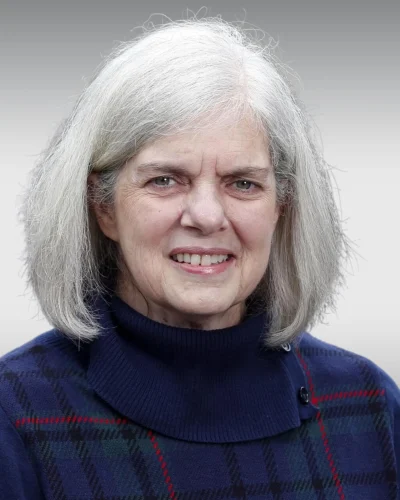
Dr. Anne Fottrell, MD
Anne Austin Fottrell, M.D. specializes in child and adolescent psychiatry. She’s been in private practice in the Nashville area since 1993, after completing a residency and fellowship in psychiatry at Vanderbilt University Medical Center. Dr. Fottrell currently serves as the clinical director of psychiatry at Mercy Community Healthcare, and medical director at Bella Jace Center for Health.
She completed her undergraduate degree at Middle Tennessee State University and attended medical school at the University of Tennessee College of Medicine. Dr. Fottrell has held a variety of positions throughout her career, including roles as an assistant clinical professor at Vanderbilt University and Meharry Medical College. She also served as medical director for a youth sex offender program at Scarab Behavioral Health and is currently the clinical director of psychiatry at Allied Behavioral Health Solutions. She enjoys education and mentorship, having supervised several nurse practitioners in the field of psychiatry. Outside of her work, Dr. Fottrell enjoys traveling, camping, kayaking, going to church, and spending time with friends and her dogs.
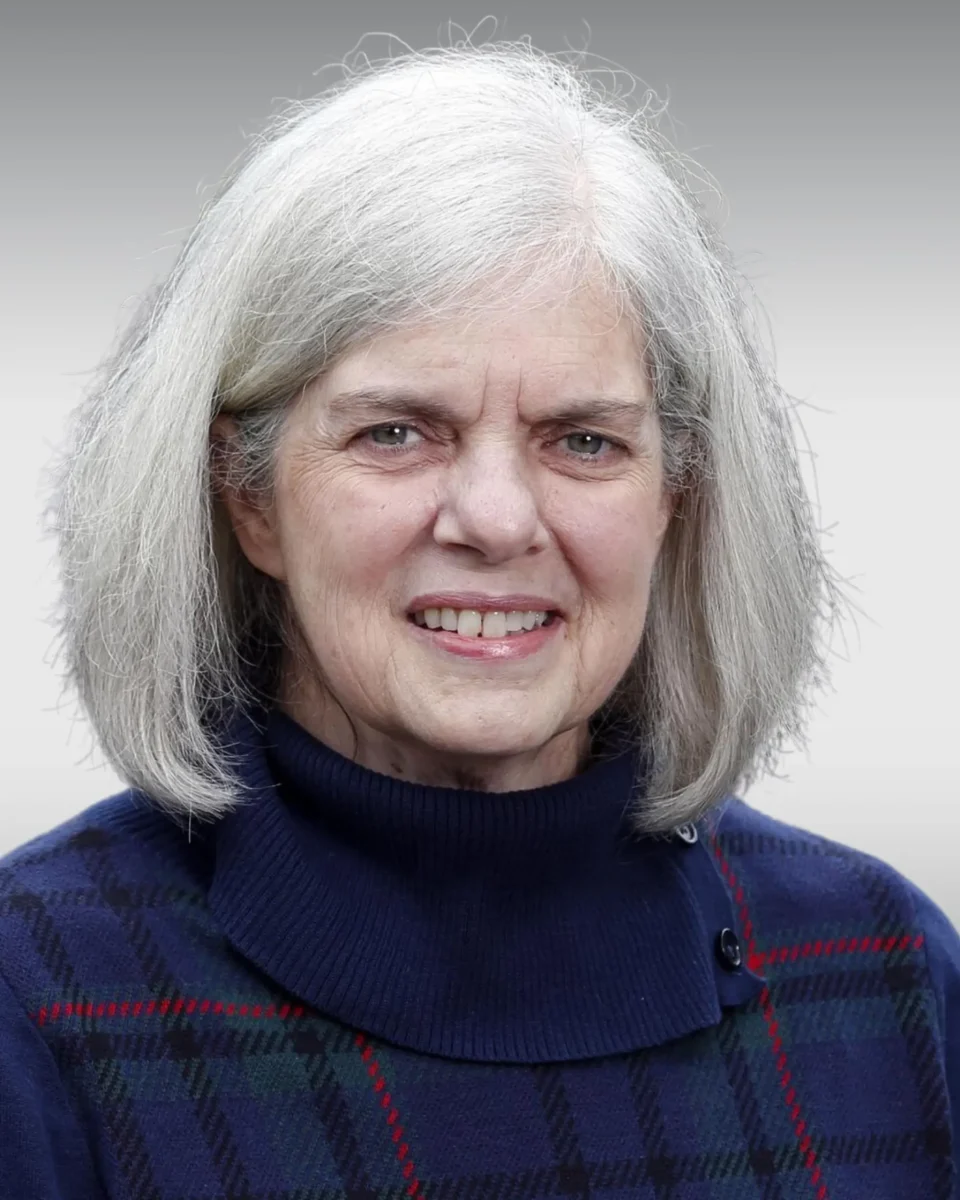
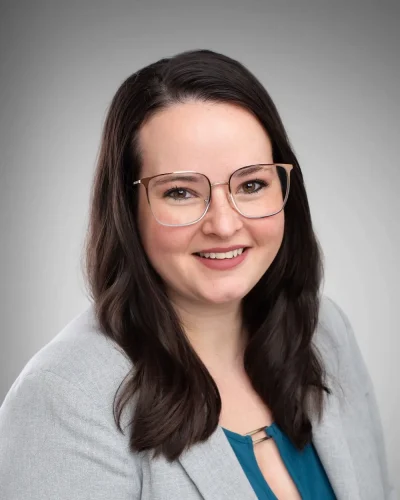
Alyssa Sebastian, MA, LPC-MHSP
Advice To My Younger Self: “In any given moment we have two options: to step forward into growth or step back into safety.” -Abraham Maslow
Education:
- Trevecca Nazarene University – Master of Arts, Mental Health
- Tennessee Tech University – Bachelor of Science in Psychology
Experience: Prior to becoming Embrace U’s Tennessee regional director, Alyssa was a program administrator at Embrace U in Mt. Juliet. Before joining Embrace U, Alyssa was the executive director at Connections Wellness Group (Vertava Health) in Nashville, TN. She is trained in EMDR, including a wide range of trauma-focused interventions. She is a licensed professional counselor and mental health service provider.
Why did you choose to work with adolescents? “I wanted to expand my experience to working with adolescents to be well versed in helping a wide variety of populations. After making this career shift, I learned that I enjoy working with adolescents, as well as the whole family unit. I have always had a passion for helping those in need.”
What is something you’ve learned from your work with adolescents that has been a key takeaway? “Adolescents need someone there for them too. I am the type of leader that likes to give all patients a chance, regardless of their history. It doesn’t matter if they have a history of multiple treatments or behavioral problems. I want to make sure everyone is given a chance to start fresh and be the best they can be. Everyone deserves that.”
Did you play sports or participate in any activities when you were younger? “I played French Horn in my high school band during concert season. When it was marching season, you could either find me with a flag on the color guard or holding a Mellophone with the rest of the instruments. I spent every summer on Dale Hollow Lake with friends and family.”
What is one thing you wish adolescents understood about mental health? “It is okay not to be okay. It is okay to ask for help, even if you are embarrassed to do so. We are here to help with no judgement. This season in your life isn’t forever..”
What are your favorite things to do outside of work? “I mostly enjoy spending time with my husband, daughter, and Golden Retriever (Winston). They are my world. It doesn’t matter what we are doing if we are all together.”
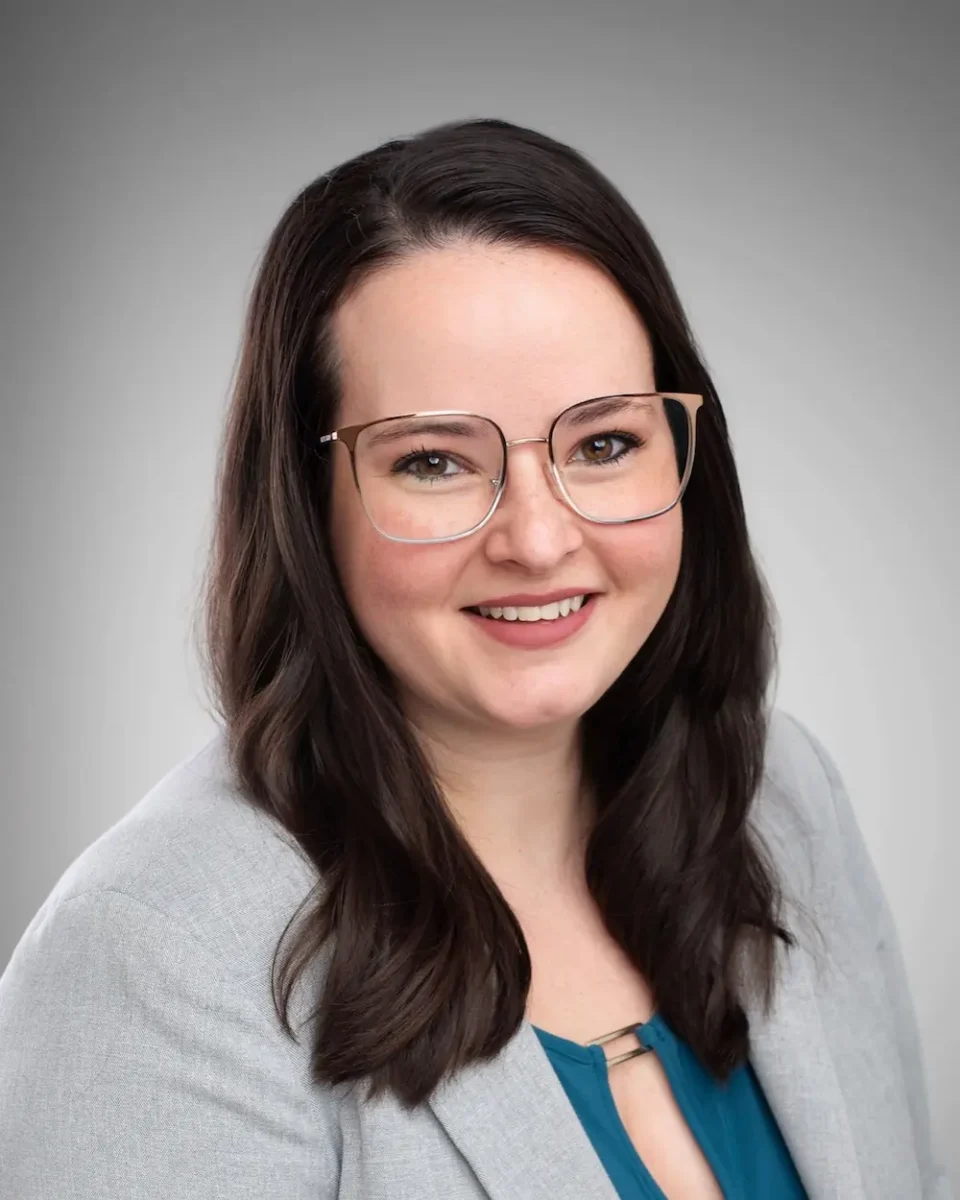
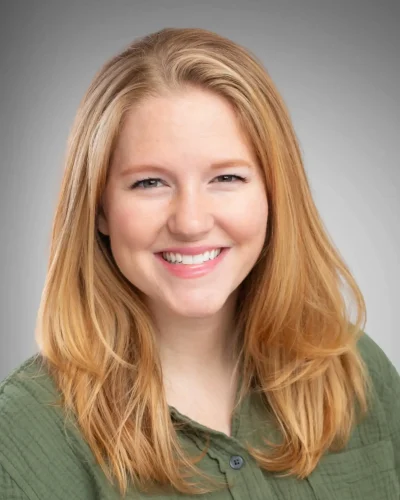
Hannah Claiborne, RN, PMHNP-BC
Advice To My Younger Self:
“Life High school is hard and does not matter as much as you think it does. You’ll have many more opportunities to make lifelong friendships and precious memories after graduation. Focus on yourself, your grades, people that uplift you, sports, activities, and finding what makes you feel like your most authentic self.
Why did you choose to work with adolescents?
Adolescents are resilient, challenging, entertaining, emotional, and real. I love the opportunity to learn from and help shape the next generation. I believe that offering essential support early in an adolescent’s life can significantly alter the trajectory of their future.
What is something you’ve learned from your work with adolescents that has been a key takeaway?
You’ve got to be creative and stay on your toes.
Did you play sports or participate in any activities when you were younger?
I was actively involved in the Beta Club and student council during high school, and I played both softball and volleyball. I even had the honor of being my school’s mascot—go Cougars! After graduating, I continued my athletic journey by playing college volleyball for four years at Freed-Hardeman University.
What is one thing you wish adolescents understood about mental health?
As much as I hate social media, it is a platform for change. Your generation can help reshape the stigma of mental health. As you feel comfortable, talk openly about mental health. Know the facts and educate your peers on the misperceptions. Remind people words matter. Support each other.
What are your favorite things to do outside of work?
I love going to live music events/concert festivals, taking naps with my dog Teddy, playing volleyball/kickball/any sport really, being active, Fantasy football league, traveling, trying new foods, and hanging with my friends/family.
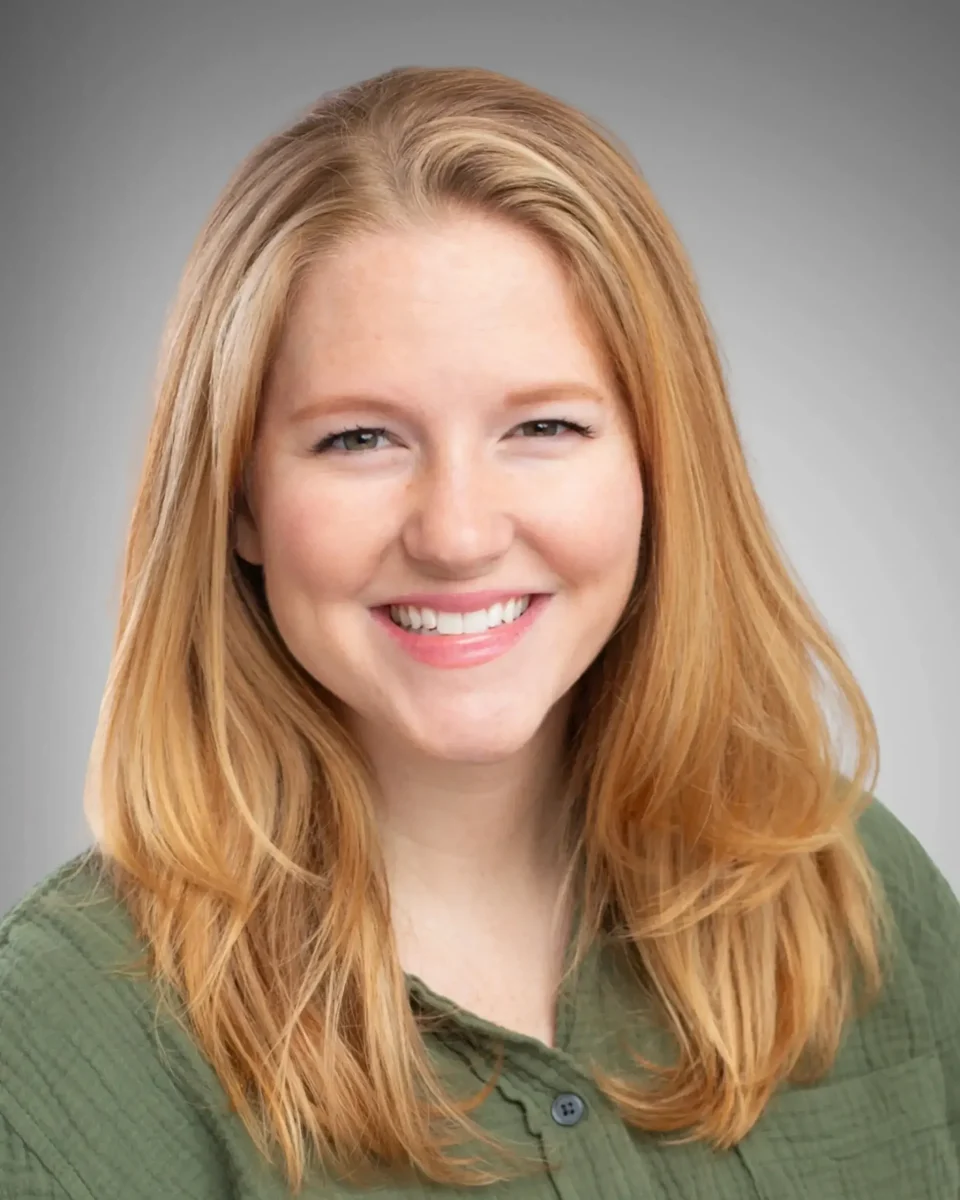
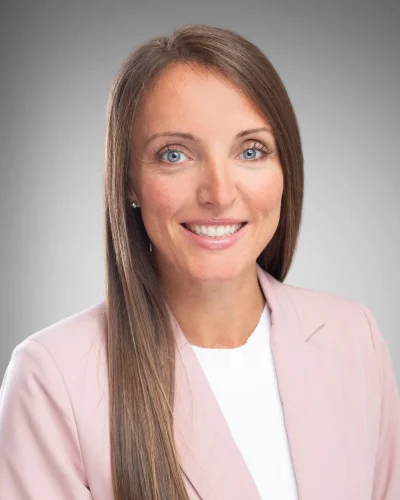
Nicole Stephan, BSW
Advice To My Younger Self: “Learn how to set healthy boundaries with people, to not worry so much about what other people think, and it’s okay to say no. I would also tell myself to stop eating double cheeseburgers from McDonalds, wear sunscreen, and wash my face before bed. “
Education:
- Bachelor of Social Work- Middle Tennessee State University
Why did you choose to work with adolescents? As a social worker I always knew I wanted to work with children and families. I wanted to be able to provide families and children with the resources that would have benefited my family when I was a teenager.
What is one thing you wish adolescents knew about l health/treatment? That physical health and mental health are both very important. Learning how to care for your body (proper nutrition and exercise) and mind is something we should teach our children at a young age.
Did you participate in any activities for bs, activities, or passions when you were aged 10-18? What were they? Did you ever feel pressure/stress? Would group therapy have benefitted you/your peers? I was a cheerleader in middle and high school. I did feel pressure and stress from school, activities, and home life. Group therapy would have been beneficial because I would have been with people who felt or experienced similar feelings and issues. I would not have felt so alone and could have learned healthier coping skills.
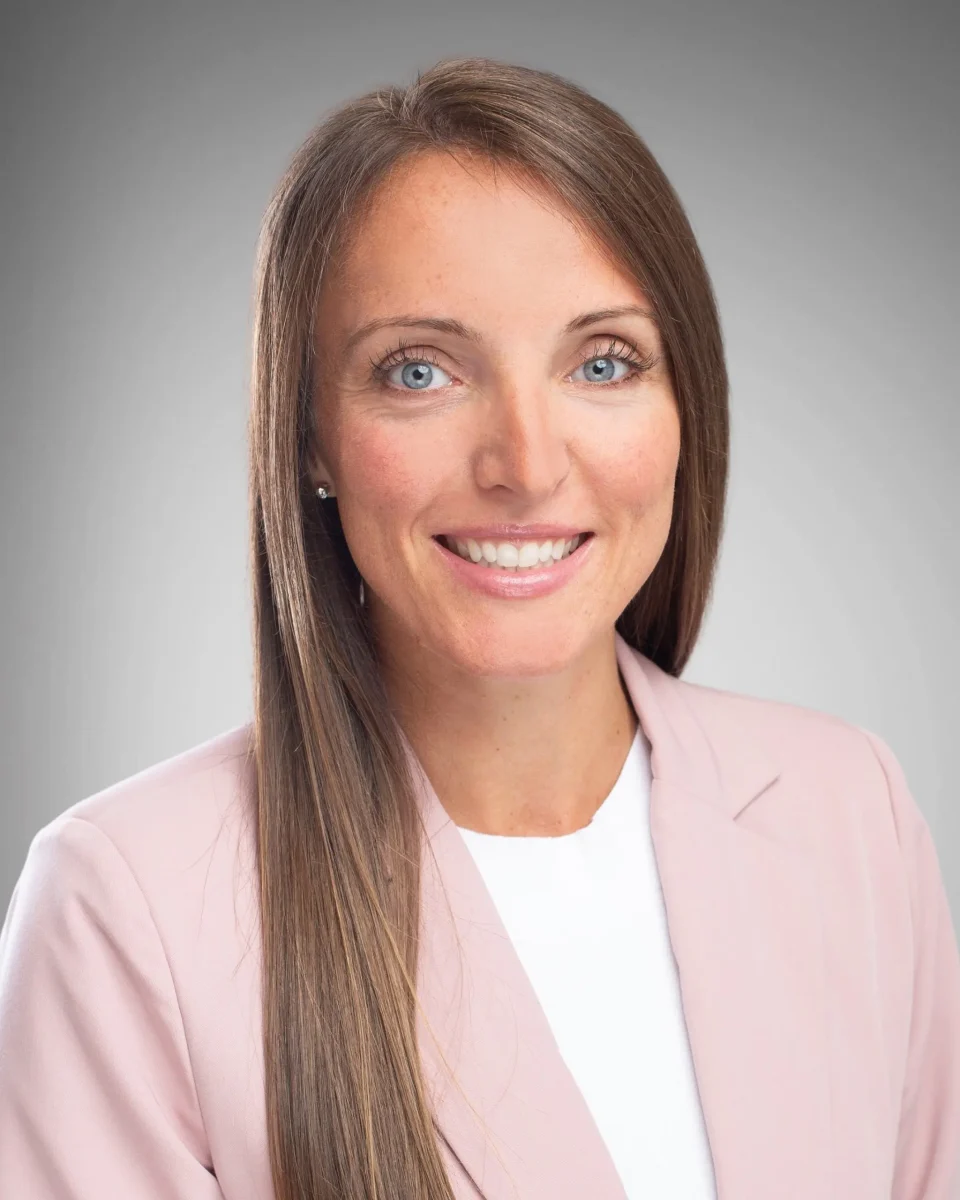
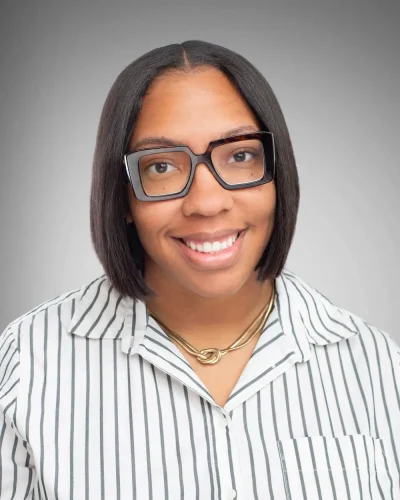
Antonay Rodgers, LCSW
Advice to My Younger Self: “Trust yourself and embrace your journey.” .” It’s important to recognize that self-doubt is natural, but believing in your own abilities and staying true to your values can guide you through challenges and help you grow.
Education:
- Master of Social Work – Clark Atlanta University
- Bachelor of Science in Sociology – Florida State University
Why do you like working with adolescents?
I chose to work with adolescents because this stage of life is a critical period of growth and development. Adolescents are navigating complex changes, including emotional, social, and cognitive shifts, and they are beginning to shape their identities and future paths. Being part of their journey offers a unique opportunity to make a positive impact during this formative time. I find it rewarding to support them as they explore their potential, face challenges, and build resilience, helping them to develop the skills and confidence they need to thrive.
What is something you have learned from working with adolescents?
One key takeaway from working with adolescents is the immense value of empathy and active listening. Adolescents often grapple with intense emotions and uncertainties, and providing a supportive, non-judgmental space where they feel heard can make a significant difference in their lives. I’ve learned that even small gestures of understanding, and validation can foster trust and openness, enabling them to explore their feelings and challenges more freely.
Did you play any sports or participate in any activities when you were younger?
Yes, I was involved in cheerleading and was very active with my church youth department when I was younger. Cheerleading taught me teamwork, discipline, and the importance of supporting others, while my involvement with the church youth department helped me develop leadership skills and a deep sense of community. Both experiences were formative and have influenced how I connect with and support adolescents today.
What is one thing you wish adolescents understood about mental health?
I wish adolescents understood that mental health is just as important as physical health and that it’s okay to seek help when they need it. Mental health challenges are a normal part of life, and addressing them openly and early can lead to better outcomes. It’s important for them to know that seeking support is a sign of strength, not weakness, and that they don’t have to face their struggles alone. Building a strong support system and developing healthy coping strategies can make a significant difference in their overall well-being.
What are your favorite things to do outside of work?
I love spending time with my loved ones and creating memorable experiences together. Whether it’s sharing a meal, going on adventures, or simply enjoying each other’s company, these moments are incredibly meaningful to me. I also have a passion for traveling the world, exploring new cultures, and discovering different perspectives. Both activities bring joy and enrichment to my life and help me stay connected and inspired.
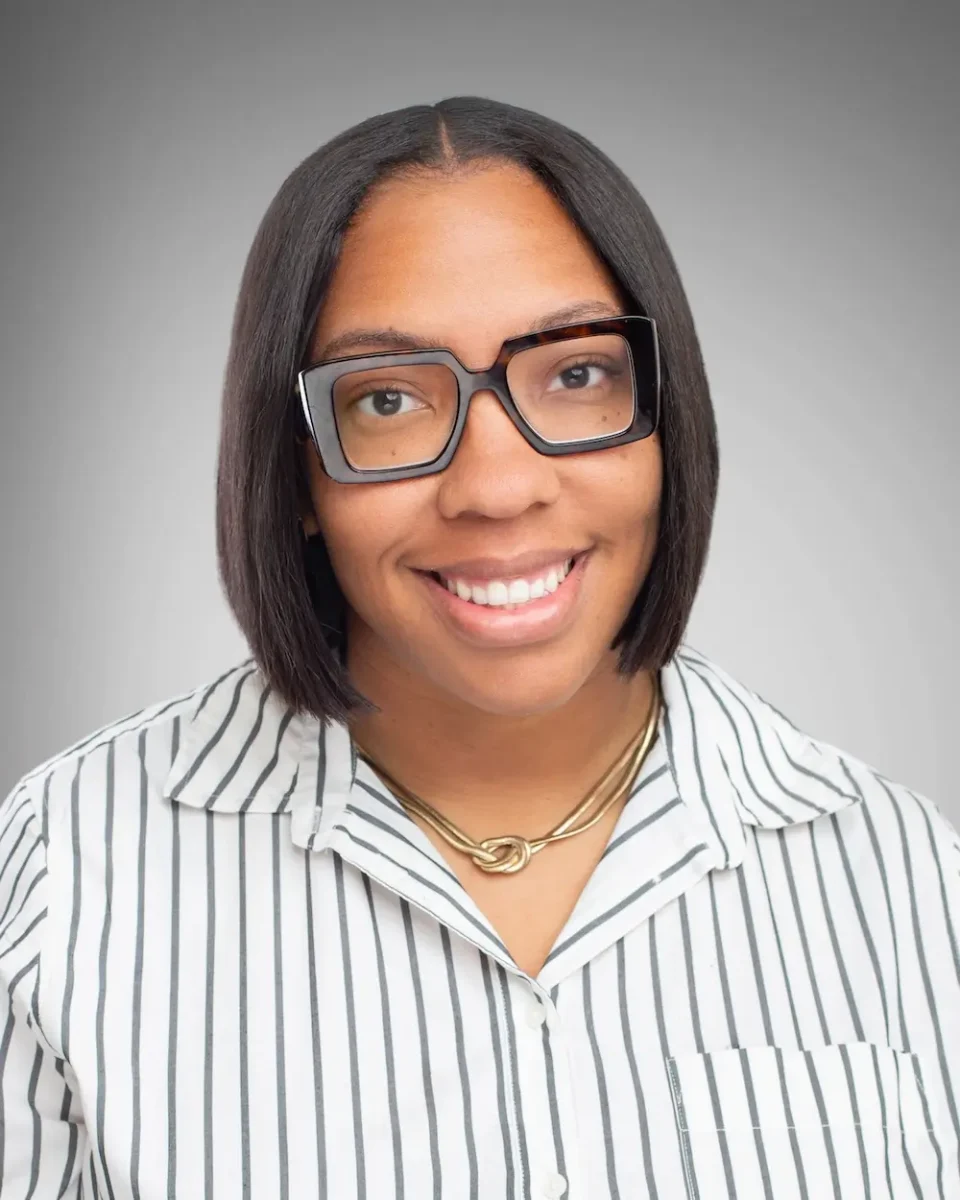
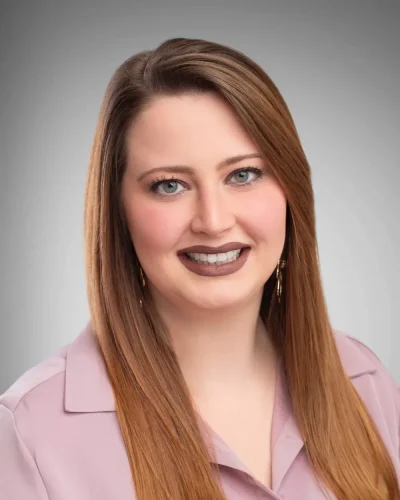
Summer Appleby, MA, LPC-MHSP, ATR
Education:
UT Martin, Bachelor of Fine Arts in Studio Art
Southern Illinois University Edwardsville, Masters of Art Therapy Counseling, Registered Art Therapist
Previous work experience:
*United Health Services, Clinical Art Therapist to male residential clients, ages 8-15, who have experienced sexual trauma. I provided individual, family and group therapy for each client. I also attended case management meetings, court hearings and daily milieu scheduling events. – Nashville & Murfreesboro, TN
*Connections Wellness Group, Art Therapist to PHP/IOP clients, ages 13-17, who struggle with self-harm, SI & HI in Murfreesboro, TN area. I provided family and group therapy for each client on my caseload.
*Charlie Mental Health, Creative Arts Therapist to evening IOP clients through a telehealth platform ages 10-60. I provided group art therapy to each cl on my caseload for one hour of their 3 hour a da programming. – Telehealth
Why did you choose to work with adolescents?
I struggled in my adolescent years myself and through the positive adult relationships I made, I was able to overcome my adversities and strive within my family life, career and mental health goals. Now as a mental health professional, I want to be that positive adult relationship for other struggling adolescents to give a chance at a happier life.
What is something you’ve learned from your work with adolescents that has been your takeaway?
Adolescents are individuals. I feel a lot of times, society may diminish the intelligence and the experience of a child and through my work with these individuals, I have witnessed firsthand the innovation, empathy and growth that can come from each of their lives. I have learned that change can be for the better and these young minds have some great ideas for that change.
Did you play sports or participate in any activities when you were younger?
I played basketball, softball, volleyball and was in color guard through school. However, I was never great at any! I enjoyed choir and drama clubs more than sports.
What is one thing you wish adolescents understood about mental health?
I wish adolescents better understood that mental health is a work in progress. There is no final outcome. Life can throw lots of curveballs, and through those experiences come different challenges that may have never been there before. With each curveball comes new ideas for coping, navigating stress and finding happiness. One strategy that has worked in the past may not serve you now. It’s an ever changing process.
If you could give your younger self a word of advice, what would it be?
Seeing other’s perspectives is key. It’s easy to focus on the negatives in your life because of the emotional attachment you have to each aspect. I would tell myself to try looking outward to others and their experiences at a younger age than when I did start considering perspective. Serving others and being able to help has become a huge drive for my happiness and I would have liked to have given some of that to younger me.
What are your favorite things to do outside of work?
You can find me at the local TJMaxx at any given time. I have a TJMaxx credit card and Lord knows I am not afraid to use it! If I am not there, I am most likely at weekly game night with my family or my daughter’s cheer and gymnastic practices. On the days I am at home, I am making art, drinking coffee most likely from Starbucks and binge-watching Survivor.
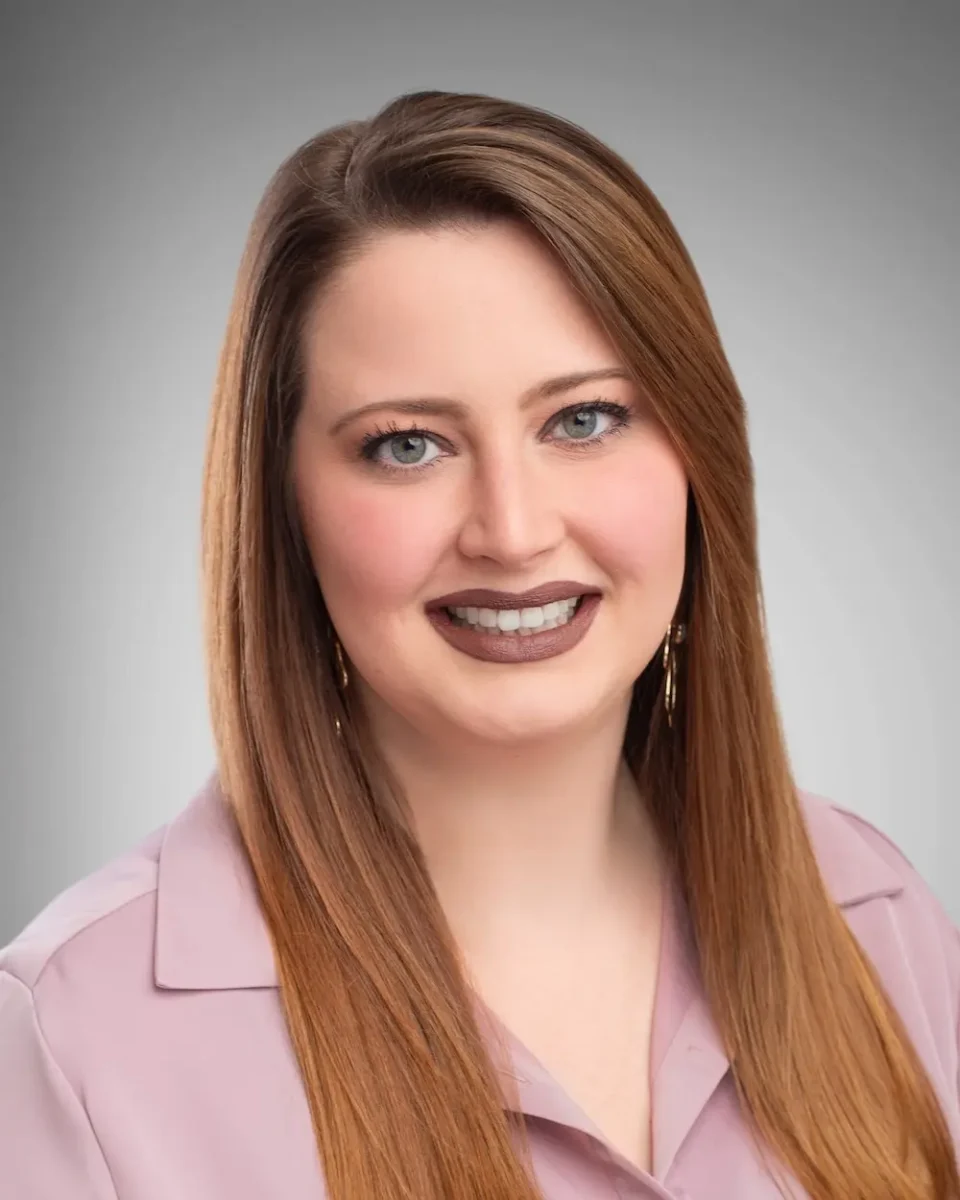
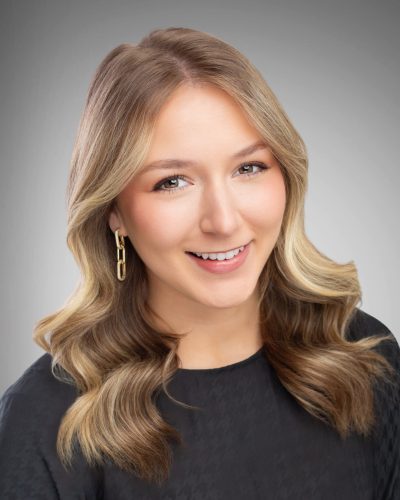
Rachel Dorner, LPC-MHSP (Temp)
Education: Lipscomb University, M.S. in Clinical Mental Health Counseling, with a specialization in Play Therapy.
Florida State University, B.S. in Family and Child Sciences with a minor in Psychology.
Previous work experience: I completed my internship at EmbraceU this past year and a half providing individual, family, and group therapy, before accepting a full-time position here. I have worked with a variety of adolescent clients who were facing anxiety, depression, reactive attachment disorder, navigating neurodivergence, and a variety of other diagnoses.
Why did you choose to work with adolescents? I chose to work with adolescents because this stage of life is full of growth, self-discovery, and unique challenges. Adolescents are navigating complex emotions, relationships, and transitions, and I’m passionate about providing a safe, supportive space where they can explore and strengthen their identities. Helping adolescents find their voice, build confidence, and develop tools to tackle life head-on is what makes this work so exciting and rewarding.
What is something you’ve learned from your work with adolescents that has been your takeaway? Working with adolescents has taught me that they’re some of the most resilient, creative, and hilarious people you’ll ever meet. They’re navigating big feelings and bigger questions, and when given a safe space to be themselves, they can surprise you with their insight and strength.
Did you play sports or participate in any activities when you were younger? I was a competitive gymnast for eights years and then I did track and cross country through high school. I loved being a part of a team and challenging myself!
What is one thing you wish adolescents understood about mental health? I wish adolescents understood that struggling with your mental health doesn’t mean you’re broken or weak—it just means you’re human. Emotions, stress, and challenges are all part of life, and asking for help is a sign of strength, not failure.
If you could give your younger self a word of advice, what would it be? The quote, “I’ve learned that people will forget what you said, people will forget what you did, but people will never forget how you made them feel” comes to mind. I’d tell my younger self that chasing perfection isn’t what truly matters. What’s important is leading with kindness and making a positive difference in the lives of those around you.
What are your favorite things to do outside of work? I am from Florida so going to the beach or out on the lake will always be my favorite things to do! I also love reading, working out, hanging out with friends, fashion, and trying new restaurants!
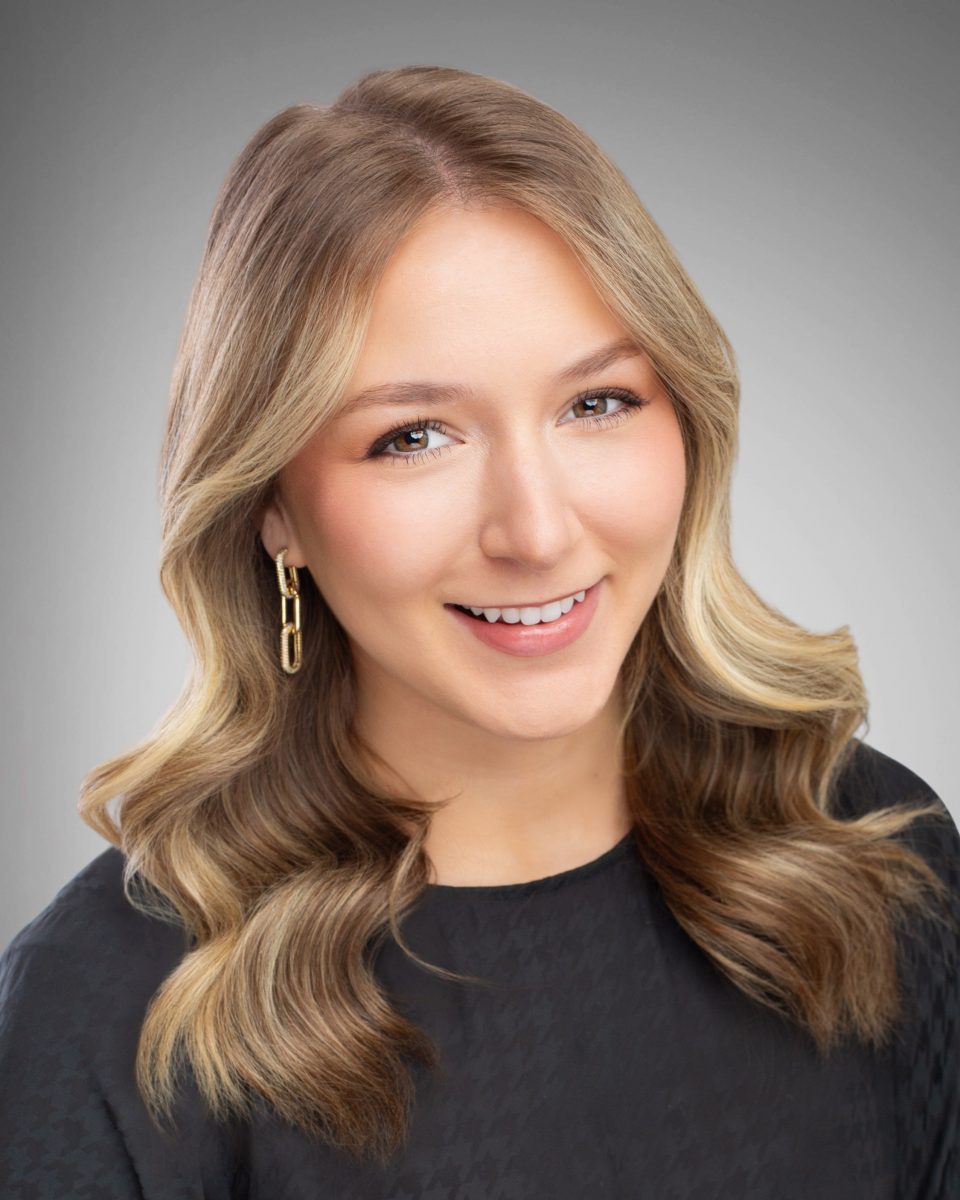
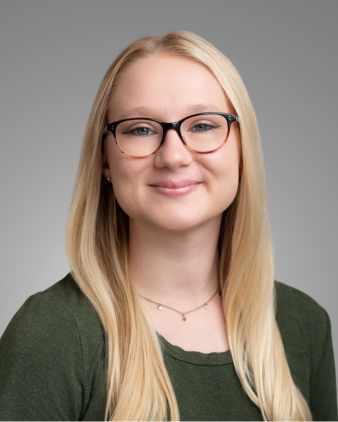
Taylor Graham, LMSW
Why did you choose to work with adolescents?
I started my career working with adolescents because of a desire for all children to have hope for the future and a loving sense of self. In my time working in the substance abuse field, I’ve seen a pattern emerge: the roots of addiction and trauma often begin in childhood/adolescence. I’m passionate about Trauma-Informed Care, prevention, and early intervention, so I’m returning to work with adolescents in hopes to see fewer and fewer children grow into adults who struggle with the effects of trauma and addiction.
What is something you’ve learned from your work with adolescents that has been your takeaway?
All behavior is communication, and all people want to be seen, heard, and accepted.
Did you play sports or participate in any activities when you were younger?
I participated in archery in middle school. In high school, I was in marching and concert band. I played percussion in the front ensemble my freshman and senior year and marched bass drum in the drumline for two years in between.
What is one thing you wish adolescents understood about mental health?
I wish adolescents understood that feelings change, they are not alone, and they have more power than they realize. Once someone learns how to accept what they can control versus what they can’t, they are unstoppable!
If you could give your younger self a word of advice, what would it be?
I would advise my younger self to take this Dr. Seuss quote to heart: “Be who you are and say what you feel, because those who mind don’t matter, and those who matter don’t mind.” I’d give my younger self a big hug and tell her that she is enough, and it is okay to mess up sometimes!
What are your favorite things to do outside of work?
I love spending quality time with my family, and that usually includes superhero movies, fantasy books, dungeons & dragons, music, art, camping, and baking.
Previous work experience:
*Residential Therapist at The Next-Door Recovery. I provided group and individual therapy to women experiencing co-occurring substance abuse and mental health challenges.
*Community Support Specialist at Centerstone of TN. I provided intensive case management services to clients of all ages receiving community mental health treatment.
*Outreach Coordinator at Rocketown. I participated in after-school programming activities for students in downtown Nashville. I also provided mentorship and supportive groups for girls ages 14-18.
Education: Institution attended, degree, training, etc.
Trevecca Nazarene University - Bachelor of Social Work, minor in Behavioral Science
University of Tennessee: Knoxville - Master of Social Work, certification in Trauma Treatment

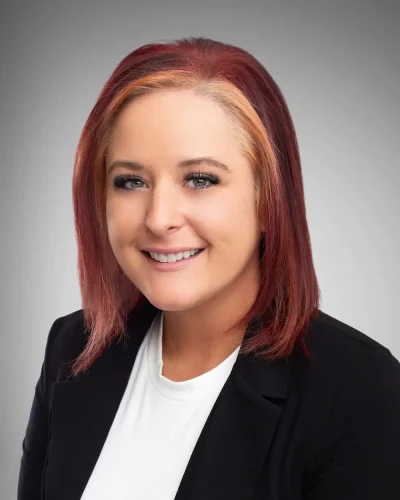
Amanda Pulley
Advice To My Younger Self:
“Life is a precious gift, so lead yours reasonably in happiness and to the fullest. Don’t be afraid to be silly, laugh at yourself, don’t take yourself too seriously! Smiles and laughs are contagious, so they can only positively impact the people around you, speak to your warmth, and add some light to someone’s day.” -unknown.
Why did you choose to work with adolescents? I wanted to expand my experience working with adolescents to be able to help a wide variety of populations. I have worked with Pediatrics for the past four years. I learned that I enjoy working with adolescents the most from any other population.
What is something you’ve learned from your work with adolescents that has been a key takeaway?
I enjoy being there for them. I like to be there to help in any way I can.
Did you play sports or participate in any activities when you were younger?
I spent time with friends and family, played softball and went on adventures outdoors.
What is one thing you wish adolescents understood about mental health?
Living with a mental illness can be lonely and challenging, and being there for someone who is struggling can make all the difference in the world.
What are your favorite things to do outside of work?
I mostly enjoy spending time with my husband, my three dogs Allie (German Shepherd), Axel (American Bully) and Zeva (German Shepherd) They are my world. I also love to go hiking and kayaking. Being outdoors is the one place you can just clear your head and have fun.
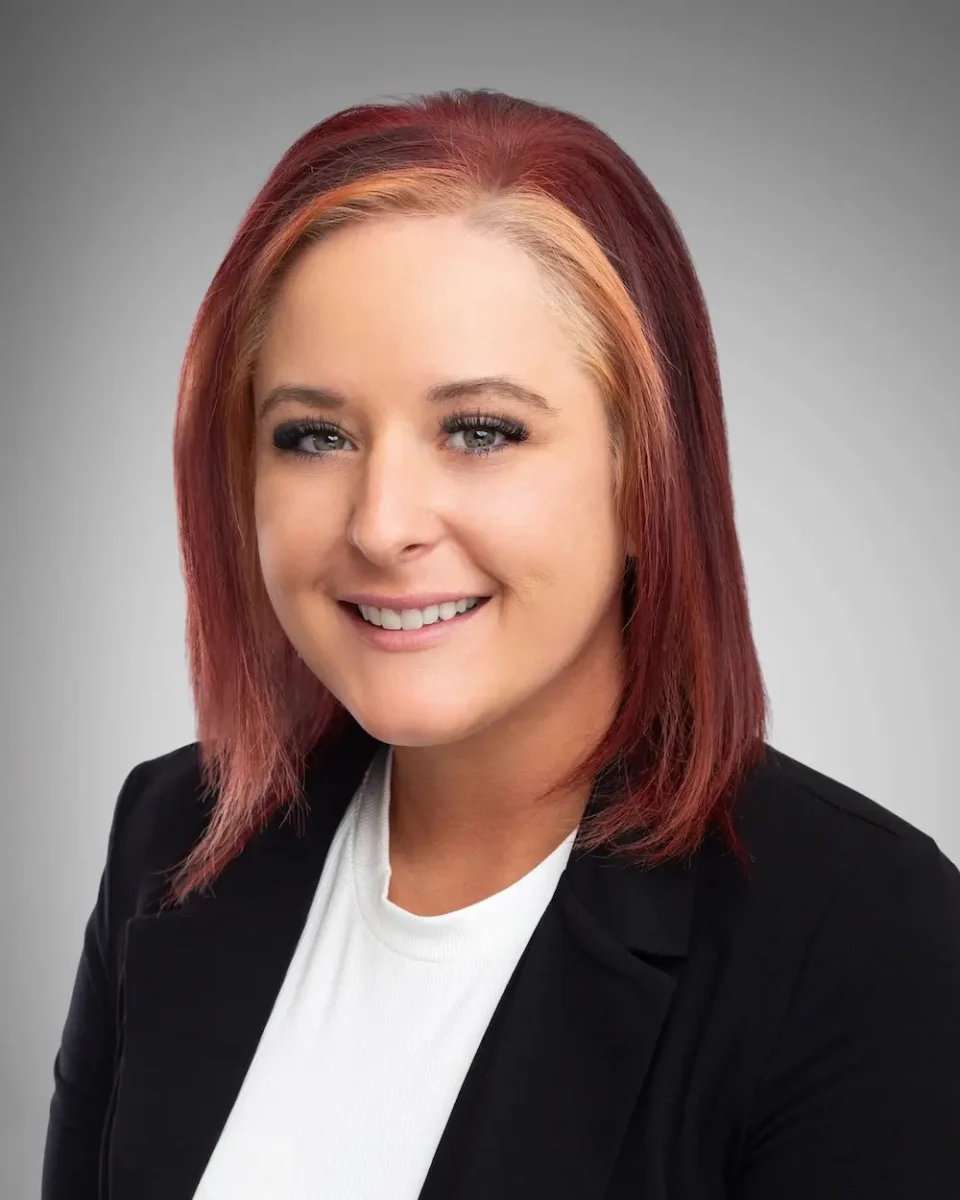
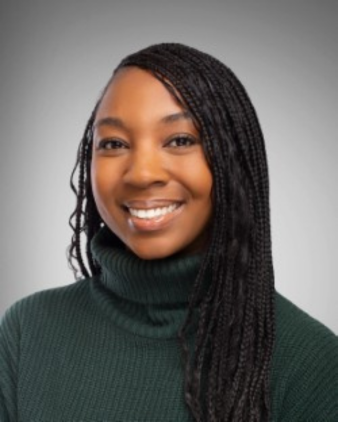
Arielle Bradshaw
Previous work experience: past job titles/roles, location, description:
I have over six years of experience as a Licensed Practical Nurse, working with patients from infancy through adulthood. I also have more than five years of administrative experience. My previous roles include LPN at Vanderbilt University and Referral Coordinator/LPN at Middle Tennessee State University, where I coordinated care and supported patients and families.
Why did you choose to work with adolescents?
I chose to work with adolescents because this is a pivotal stage of life where individuals are discovering who they are and forming the foundation of the adults they will become. Being part of this process allows me to provide guidance, encouragement, and support during such an important period of growth and self-exploration.
What is something you’ve learned from your work with adolescents that has been your takeaway?
I’ve learned that you can truly make a lasting impact during adolescence. This age is full of self-discovery, and with proper guidance and support, adolescents can develop confidence, resilience, and a strong sense of identity. Even small interventions can have a meaningful effect on their growth and future.
Did you play sports or participate in any activities when you were younger?
Yes! I ran track in middle and high school, competing in the 100- and 200-meter relays as well as the 100- and 200-meter hurdles. I still hold the school records for the 100- and 200-meter hurdles at Dyersburg High School.
What is one thing you wish adolescents understood about mental health?
I wish adolescents understood that the effort they put into their mental health directly shapes the outcome. Just like physical health, mental health requires consistent care, attention, and practice. Nurturing it strengthens resilience, balance, and overall well-being, helping adolescents navigate life’s challenges more effectively.
If you could give your younger self a word of advice, what would it be?
I would tell my younger self to show up fully, without shrinking or hiding. You deserve to take up space and share your gifts with the world. Life will bring challenges and opportunities to grow, but through it all, you will evolve into a stronger, more confident version of yourself.
What are your favorite things to do outside of work?
I love spending time outdoors, going on vacations with family, trying new recipes, and going to the movies.
Education: Institution attended, degree, training, etc.:
- TCAT Newbern – Practical Nursing License, 2019
- Dyersburg State Community College – A.S. in General Studies, 2021
- Middle Tennessee State University – B.S. in Psychology, 2025


Winston
Meet Winston:
Winston is a 3-year-old Golden Retriever who lives with his handler, Alyssa Sebastian, and her family in Mt. Juliet. Winston is trained to identify and notice negative emotions and will provide cuddles and support for those in need. He tends to start his day with some zoomies around the facility and then gets right to work. He knows how to sit, spin, lay down, and give hugs. You can find him cuddled up to someone or greeting people at the front desk. He has worked with a variety of populations in places like nursing homes, substance abuse rehabilitation centers, and (his favorite) adolescent programs. Winston naturally brings joy to anyone that he comes across. His favorite snacks include bananas and bell peppers but will take anything you have. He has had an impact on thousands of people in his career and plans to help many more. People of any age with physical, medical, or emotional problems, whether long or short term, can receive help from pet therapy. He travels with Alyssa to our Tennessee clinics.

Contact Us
You don’t have to go through this alone.
Every journey to healing starts with a conversation. If your teen is struggling, our care team is here to listen and guide you toward the right support. Fill out our contact form today and take the first step toward hope and healing with Embrace U.
